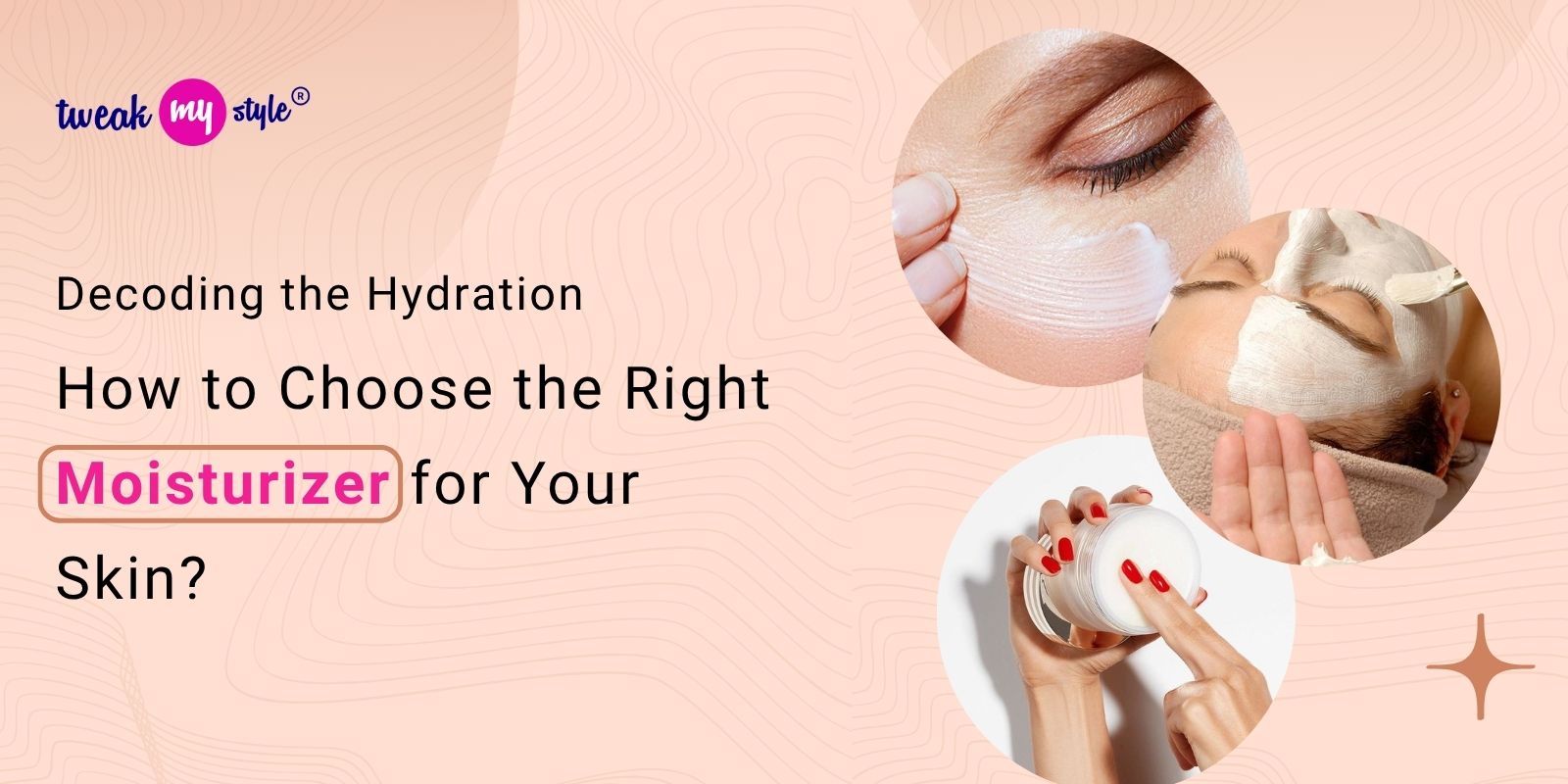- Jun 10, 2025
- Skincare Tips
- 917
Share this post on:

Moisturizing is a fundamental step in any skincare routine, yet the vast array of products available can make choosing the right one feel daunting. The key to radiant, healthy skin lies in understanding your skin type and selecting a moisturizer tailored to its unique needs. This comprehensive guide will decode the essentials of hydration and help you pick the perfect moisturizer for your skin, ensuring optimal care and lasting glow.
Why Moisturizers Matter for Skin Health
Moisturizers serve as a protective barrier that locks in hydration, strengthens the skin’s natural defenses, and prevents common issues like dryness, flakiness, and excess oil. They work by combining three key types of ingredients:
Humectants: Draw moisture from the environment into the skin (e.g., hyaluronic acid, glycerin).
Emollients: Smooth and soften the skin surface (e.g., shea butter, squalane).
Occlusives: Seal in moisture to prevent water loss (e.g., petrolatum, dimethicone).
A well-chosen moisturizer not only keeps your skin hydrated but can also address specific concerns such as acne, sensitivity, or aging. By matching your moisturizer to your skin type, you enhance your skin’s natural balance and resilience.
Step 1: Identify Your Skin Type
Before selecting a moisturizer, it’s essential to understand your skin type. The main categories are:
Normal Skin:Well-balanced, not too oily or dry, usually less prone to skin issues.
Dry Skin:Feels tight, rough, and may have flaky patches; lacks natural oils.
Oily Skin:Appears shiny, prone to acne and enlarged pores.
Combination Skin:Exhibits both oily and dry areas, commonly oily in the T-zone and dry on cheeks.
Sensitive Skin:Easily irritated, prone to redness and reactions.
Knowing your skin type guides you in choosing a moisturizer that complements your skin’s unique needs.
Step 2: Choose a Moisturizer Based on Your Skin Type
For Normal Skin: Normal skin is the easiest to care for since it maintains a good natural moisture balance. The goal is to preserve hydration without adding heaviness.
Texture:Lightweight, water-based moisturizers such as gels or lotions.
Key Ingredients:Hyaluronic acid for hydration, niacinamide for brightness and oil control, antioxidants like vitamin C for environmental protection.
Tips:Use a moisturizer with SPF during the day to protect against UV damage; a simple hydrating cream suffices at night.
Example: A gel-cream containing hyaluronic acid and green tea extract keeps normal skin refreshed and radiant without clogging pores368.
For Dry Skin: Dry skin requires richer, more nourishing moisturizers to restore hydration and repair the skin barrier.
Texture:Thick creams or balms with emollient textures.
Key Ingredients:Ceramides to repair the skin barrier, shea butter and squalane for intense moisture, glycerin to attract water, and soothing agents like oat extract or aloe vera.
Tips:Avoid alcohol-based products that can strip moisture. Apply moisturizer to damp skin to lock in hydration.
Example: A rich cream with ceramides and avocado oil soothes dryness and reduces flakiness, such as CeraVe Moisturizing Cream or Cetaphil Moisturising Lotion358.
For Oily Skin: Oily skin benefits from lightweight, non-comedogenic moisturizers that hydrate without clogging pores or adding shine.
Texture:Gel-based or water-based moisturizers that feel light.
Key Ingredients:Salicylic acid to control acne, niacinamide to regulate oil production, aloe vera for soothing.
Tips:Choose oil-free formulas and avoid heavy creams.
Example: A gel moisturizer with salicylic acid and niacinamide helps control excess oil while maintaining hydration28.
For Combination Skin: Combination skin needs a balanced moisturizer that hydrates dry areas without making oily zones greasy.
Texture:Lightweight, water-based lotions or gels.
Key Ingredients:Hyaluronic acid and glycerin for hydration, niacinamide to balance oil and soothe dry patches.
Tips:Use different moisturizers on different parts of the face if needed, or a versatile formula that addresses both needs.
Example: A lotion that provides immediate hydration and controls oiliness, such as Cetaphil Optimal Hydration Body Spray Moisturizer56.
For Sensitive Skin: Sensitive skin requires gentle, fragrance-free moisturizers that soothe irritation and avoid harsh chemicals.
Texture:Creams or lotions formulated to be hypoallergenic.
Key Ingredients:Chamomile, aloe vera, colloidal oatmeal for calming effects.
Tips:Avoid fragrances, alcohol, and other irritants. Patch test new products.
Example: Fragrance-free, ceramide-rich creams that restore the skin barrier without causing redness or irritation18.
Step 3: Consider Additional Factors
- Fragrance and Additives: Fragrances and alcohol can irritate sensitive skin and cause breakouts. Opt for fragrance-free and non-comedogenic products to minimize risk.
- SPF Protection: Moisturizers with SPF offer added sun protection, but if you spend significant time outdoors, layering with a dedicated sunscreen is recommended.
- Seasonal Changes: Skin’s hydration needs fluctuate with seasons. You may prefer lighter moisturizers in summer and richer creams in winter to combat dryness.
- Personal Comfort and Routine: Choose a moisturizer you feel comfortable using at least twice a day, as consistency is key to maintaining skin hydration14.
Step 4: How to Apply Moisturizer Effectively
Apply moisturizer immediately after cleansing, ideally on damp skin, to lock in moisture.
Use gentle upward strokes to avoid tugging on the skin.
Adjust the amount based on your skin’s needs; a pea-sized amount is generally sufficient for the face.
Layer moisturizer under makeup or sunscreen for added protection.
Conclusion
Choosing the right moisturizer is a personalized journey that begins with understanding your skin type and its unique hydration needs. Whether you have dry, oily, combination, sensitive, or normal skin, selecting the appropriate texture, ingredients, and formulation can dramatically improve your skin’s health and appearance. Remember to consider additional factors like fragrance, SPF, and seasonal changes to fine-tune your skincare routine. With the right moisturizer, your skin will stay hydrated, balanced, and glowing every day.










